UT Dallas Chess Team Comprising of 3 Grandmasters & 1 International Master CS/SE Majors Takes 3rd Place at Final Four Tournament in Big Apple

Update 4/15/19: The UT Dallas chess team defeated a solid Harvard University squad and finished in third place at the 19th annual President’s Cup collegiate chess tournament April 6 and 7 in New York City.
UT Rio Grande Valley (UTRGV) won the tournament, which also is known as the Final Four of College Chess, for the second straight year. Webster University placed second.

Based on player rankings, UT Dallas was seeded third in the tournament. However, the team had hoped to exceed those expectations.
“No matter how you’re seeded, you always want to win,” said James Stallings, director of the UT Dallas Chess Program. “But the ratings typically are pretty accurate.”
Played at the Marshall Chess Club, the match marked the final collegiate tournament for Grandmaster Anton Kovalyov, UT Dallas’ top-ranked player. Chess players are limited to six years of collegiate play.
In his final game, Kovalyov defeated Harvard’s top player, Darwin Yang.
“It was nice that I finished with the team qualifying for the Final Four. And it’s also nice that I finished by winning my last game,” Kovalyov said.
After earning his master’s degree in computer science this spring, Kovalyov will begin his doctoral studies at UT Dallas.
Each round features four players from each team playing another team. In the first round, UTRGV defeated UT Dallas. In the second, UT Dallas played top-rated Webster University to a draw, and in the final round the Comets defeated Harvard.
In addition to Kovalyov, the other players who participated in the tournament were Grandmaster David Berczes, International Master Kacper Drozdowski, Grandmaster Gil Popilski, Grandmaster Razvan Preotu and International Master Omer Reshef.

This was UT Dallas’ 16th appearance in the tournament.
UT Dallas chess coach Julio Catalino Sadorra BS’13, who started his job just six weeks before the tournament, said he is proud of the team’s performance.
“They showed great fighting spirit and mental toughness until the end, especially when we faced the favored, higher-rated Webster players,” he said. “I think third place is a solid finish in this increasingly competitive collegiate chess environment.
“We will continue working on our game preparations and team chemistry. I believe these factors can make a huge difference in the team’s performance moving forward.”
With the tournament season over, team members recently represented the University at Klyde Warren Park in downtown Dallas, playing members of the community and talking about the program. In addition, preparations are already underway for the UT Dallas Chess Camp for children ages 7-14.
Source | UT Dallas News Center
Chess Team Is Ready for Its Next Move: Final Four in New York City
With a new coach and plenty of preparation, the UT Dallas chess team is heading to the top collegiate chess tournament in the country, hoping to secure the top trophy for the fifth time.
The 2019 President’s Cup (informally known as the Final Four of College Chess) will take place April 6 and 7 in New York City. This will be the Comets’ 16th appearance in the 19 years the Final Four tournament has existed.
Julio Catalino Sadorra BS’13, the new chess team coach, played at the Final Four tournament twice when he was a member of the UT Dallas team. He has been sharing his experiences with the team and preparing them for the competition.
“The Final Four is a high-pressure event, and this year will not be any different,” he said. “While the team and I are hungry to win this tough event, I’m encouraging them to focus more on improving their play and getting into their best possible form.”
The four teams that will compete at the tournament are UT Dallas, Webster University, Harvard University and UT Rio Grande Valley. They qualified by their top performances at the Pan American Intercollegiate Team Chess Championship in December.
Four players will represent each school, with two alternates. The UT Dallas Final Four team comprises grandmaster David Berczes, international master Kacper Drozdowski, grandmaster Anton Kovalyov, grandmaster Gil Popilski, grandmaster Razvan Preotu and international master Omer Reshef.
Webster has won the title five times in the last six years, and UT Rio Grande Valley won the cup last year. Sadorra knows the competition will be tough, but he said he is preparing the UT Dallas team in a holistic manner. For instance, he wants to make sure the players’ minds are focused.
“I want to make sure they know what they want, that they carry a winning legacy of UT Dallas. They’re representing not just themselves, but also their families, their countries and, most of all, the whole University,” Sadorra said.
The team is spending a lot of time preparing for the specific opponents they will be facing, looking at previous games and tendencies.
“As a group we look over the opponents’ games, discussing players’ weaknesses and strengths,” Sadorra said. “We want to avoid positions where a particular opponent is strong. We want to take him out of his comfort zone. Doing that as a team, rather than individually, bonds us together.”
The biggest unknown that the players will face is whether they will draw the white or the black pieces. Drawing white means the player will make the first move, which can provide a slight advantage.
“Often, the white piece player wants to go aggressive, but that doesn’t happen every time. Some white piece players like to play more conservative. It really depends on the player’s style,” Sadorra said.
He also encourages the team to prepare physically, which more chess teams are now doing. He said he doesn’t require a specific exercise program but encourages players to take time to get physically fit.
“In one of our previous collegiate tournaments we played soccer against another college team, which was physically exhausting yet fun,” he said. “We are planning to do more physical activities like this for the team.”

The players at the Final Four tournament are some of the best in the world, with high chess ratings and impressive tournament wins.
“When you get into that playing hall, everyone knows what they have to do. Your opponent is not your friend, just your rival,” Sadorra said. “Our team will be ready to compete.”
The President’s Cup was founded in 2001 by Dr. Tim Redman, UT Dallas professor of literary studies, with the financial support of former UT Dallas President Franklyn Jenifer. The first tournament was held on the UT Dallas campus. Redman was the only two-term president of the United States Chess Federation in its history.
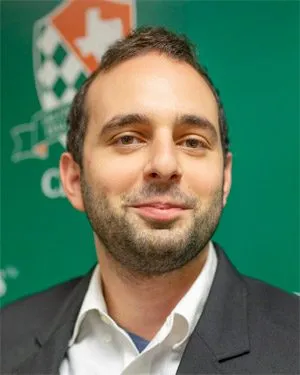
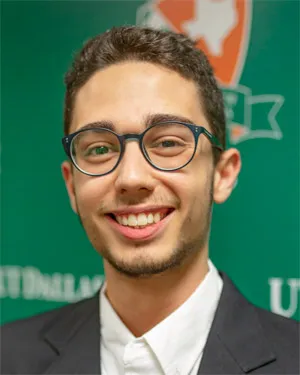
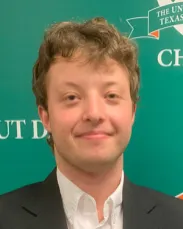
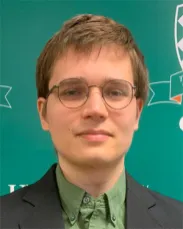
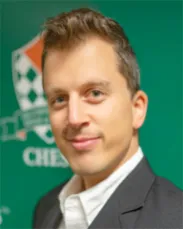
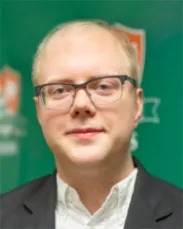
Source | UT Dallas News Center
ABOUT THE UT DALLAS COMPUTER SCIENCE DEPARTMENT
The UT Dallas Computer Science program is one of the largest Computer Science departments in the United States with over 2,800 bachelors-degree students, more than 1,000 master’s students, 190 Ph.D. students, 52 tenure-track faculty members, and 41 full-time senior lecturers, as of Fall 2018. With The University of Texas at Dallas’ unique history of starting as a graduate institution first, the CS Department is built on a legacy of valuing innovative research and providing advanced training for software engineers and computer scientists.




